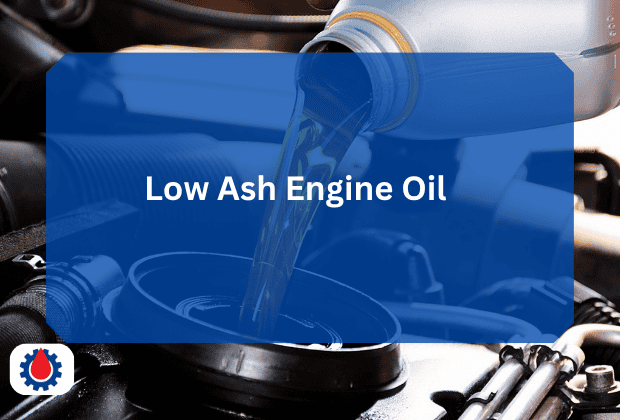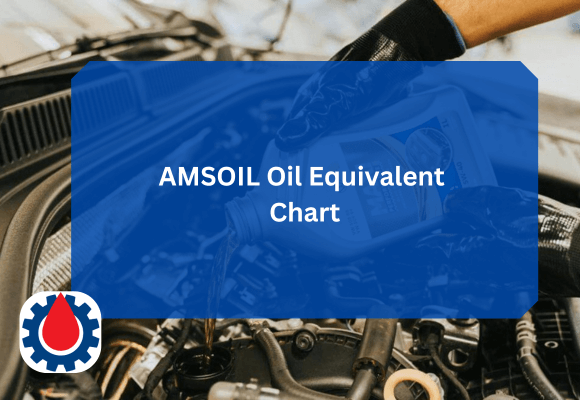To keep these systems functioning efficiently, it’s essential to use engine oils that produce minimal ash and deposits. This is where low ash engine oil, often referred to as low-SAPS oil (low Sulfated Ash, Phosphorus, and Sulfur), comes in.
In this post, we’ll explain what low ash oil is, why it matters, and highlight three of the best low ash engine oils available.
Low Ash Engine Oil
Low ash engine oil is specially formulated to reduce the amount of metallic residue, or “ash,” left behind after combustion. This is important for vehicles that use aftertreatment systems, such as DPFs and GPFs, which can become clogged by excess ash.
Traditional engine oils contain higher levels of additives like zinc, phosphorus, and sulfur that protect the engine but leave behind residue harmful to these systems.
Low ash oils meet stringent standards such as API CJ-4, CK-4, or ACEA C3. These oils are designed to work in harmony with emission control systems, helping extend their life, reduce fuel consumption, and keep the engine running cleaner for longer.
Related Best Synthetic Engine Oil(Top 5 Best in 2025)
Best Low Ash Engine Oil
1. Renewable Lubricants Bio-SynXtra HD Plus 15W-40
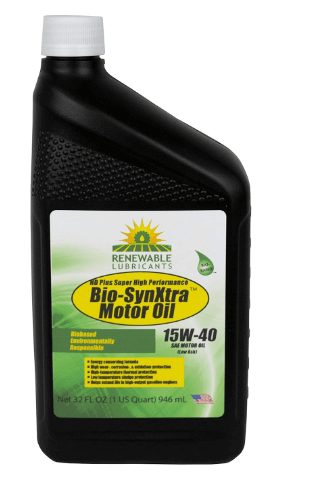
This oil is specifically designed for heavy-duty diesel engines and is fully compliant with those featuring aftertreatment systems. It delivers excellent wear protection while keeping sulfated ash levels to a minimum.
Key Features:
- Formulated for turbocharged and naturally aspirated engines
- Excellent rust and corrosion protection
- High thermal and oxidation stability
- High Total Base Number (TBN) for longer drain intervals
- Meets API SN/CJ-4 and OEM performance standards
2. Shell Rotella Heavy Duty Diesel Engine Oil
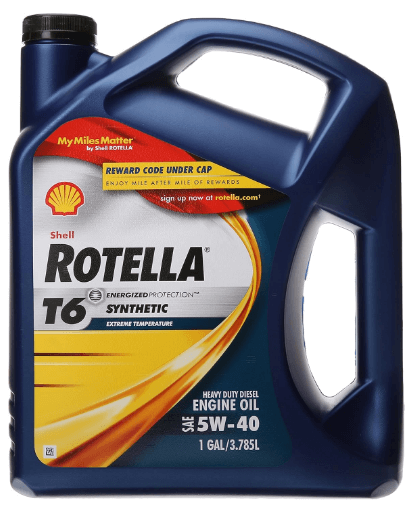
This heavy-duty engine oil uses low ash additive technology to reduce deposits in engines with high soot loads. It’s a trusted option among diesel truck owners and fleet managers.
Key Features:
- Suitable for use in older and newer diesel engines
- Provides excellent wear and deposit control
- Maintains oil viscosity under stress
- Reduces ash-related buildup in exhaust systems
- Offers thermal protection under heavy load
3. Mobil 1 ESP Formula 5W-30
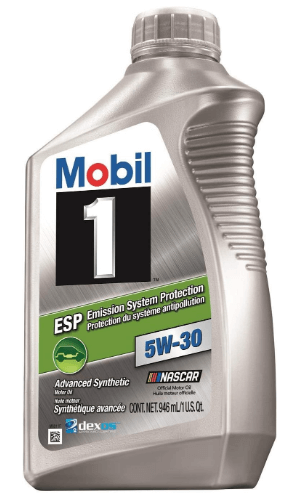
Mobil 1 ESP (Emission System Protection) is a low-SAPS synthetic oil designed specifically for European gasoline and diesel vehicles requiring low ash engine oil. It helps protect DPFs and GPFs while delivering excellent engine performance.
Key Features:
- Fully synthetic 5W-30 formulation
- Meets European OEM standards such as BMW LL-04 and VW 507.00
- Helps prolong life of emission control systems
- Provides superior sludge and wear protection
- Supports improved fuel economy
Related Engine Oil Additives to Stop Ticking Lifter(Top 5 Best Oil)
How Low Ash Oils Are Formulated
Low ash oils rely on reduced levels of metallic and sulfur-based additives. Instead of high-ZDDP (zinc dialkyldithiophosphate) formulations, they often use alternative, non-metallic or ashless additives. These oils still offer strong anti-wear protection, oxidation stability, and acid neutralization, just without the residue that would compromise modern emission systems.
In some ultra-low ash oils, the sulfated ash content is reduced to as low as 0.4%, compared to 1.0% in many traditional oils. This dramatically cuts ash buildup in DPFs, extending filter life and reducing the frequency of regeneration cycles.
Related Engine Oil With Most Zinc(Top 5 Best 2025)
How to Choose the Right Low Ash Oil
- Check Your Vehicle Manual: Look for required specifications such as ACEA C3, API CJ-4, or specific OEM standards like VW 507.00 or BMW LL-04.
- Match the Viscosity Grade: Choose a viscosity that suits your climate and engine needs (e.g., 5W-30 for lighter engines, 15W-40 for heavy-duty applications).
- Confirm Low-SAPS Labeling: Make sure the product states that it meets low ash or low-SAPS requirements.
- Buy from Trusted Retailers: To avoid counterfeit products, stick to verified sellers.
Related Additive To Remove Water From Engine Oil(Top 5 Best 2025)
Benefits of Using Low Ash Engine Oil
- Helps maintain engine cleanliness and performance
- Reduces clogging in emission systems
- Cuts down on service intervals and long-term maintenance costs
- Complies with environmental regulations and manufacturer requirements
- Enhances engine durability in high-stress conditions
FAQs
What does low ash engine oil mean?
Low ash engine oil refers to lubricants that produce minimal amounts of sulfated ash during combustion. These oils are formulated with fewer metallic additives that contribute to ash buildup. They are especially important for vehicles equipped with diesel particulate filters (DPFs), catalytic converters, and other emission control devices, as they help prevent clogging and reduce maintenance needs.
Related Engine Overheating After Oil Change(6 Causes + Solutions)
Which oils are low in ash?
Oils that meet specifications like API CJ-4, CK-4, FA-4, or ACEA C2/C3 are typically considered low ash or low-SAPS oils. Examples include:
- Mobil 1 ESP Formula 5W-30
- Shell Rotella T6 5W-40 (CJ-4 rated)
- Renewable Lubricants Bio-SynXtra 15W-40
- Always check the product label or technical data sheet to confirm its sulfated ash content.
What does ash do in engine oil?
Ash in engine oil is a byproduct of burning metallic additives (like calcium, zinc, magnesium). While these additives protect against wear and oxidation, the ash they leave behind can accumulate in exhaust systems like DPFs, leading to blockages, reduced performance, and increased emissions. Low ash oils reduce this risk while maintaining engine protection.
What happens when engine oil is too low?
If engine oil is too low, critical engine components may not receive proper lubrication. This can lead to:
- Increased friction and overheating
- Rapid wear of engine parts
- Engine knocking or tapping sounds
- Complete engine failure in severe cases
- Maintaining proper oil levels is crucial for engine longevity and performance.
What are the symptoms of a weak engine oil?
- Unusual engine noise (ticking or knocking)
- Increased oil consumption
- Reduced fuel efficiency
- Excessive exhaust smoke
- Sludge buildup or dirty oil on the dipstick
- These signs suggest the oil is no longer providing adequate protection and may need to be changed.
What causes grey engine oil?
Grey engine oil typically indicates contamination, often due to coolant leaking into the oil system. This can happen from:
- A blown head gasket
- Cracked engine block or cylinder head
- Faulty oil cooler
- Grey or milky oil should be addressed immediately, as coolant-contaminated oil can damage the engine.
Final words
Low ash engine oils are essential for modern engines, especially those fitted with emission control systems. Whether you drive a diesel truck, a European luxury car, or a commercial vehicle, using the right low-SAPS oil will keep your engine running clean and efficient while reducing harmful buildup in your exhaust system.
The products highlighted above, Renewable Lubricants Bio-SynXtra, Shell Rotella Diesel Oil, and Mobil 1 ESP Formula, are among the top-rated low ash engine oils. Each offers reliable protection while helping extend the life of your engine and emission systems.

